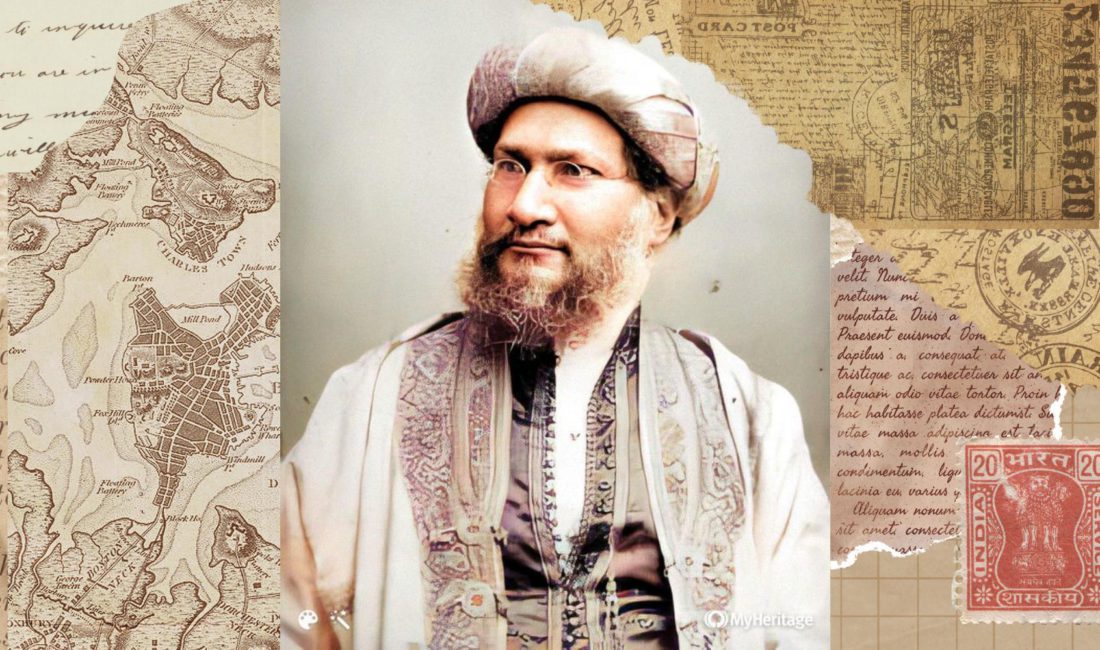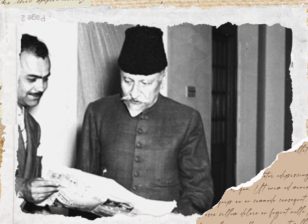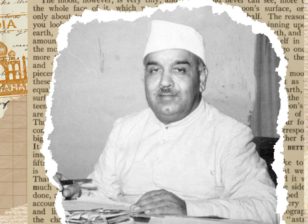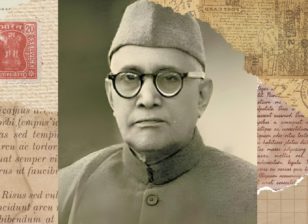Sir Badruddin Tyabji: The First Indian Chief Justice Who Paved the Way for Secular India
By Afroz Alam Sahil
Badruddin Tyabji towering figure who made his mark in the realms of knowledge, justice, and humanity. He was not only the first Indian barrister to practice at the Bombay High Court, but also the first Indian to serve as its Chief Justice. His name—Sir Badruddin Tyabji—shines in golden letters in the legal, social, and intellectual history of British India.
Early Life and Family Roots
Sir Badruddin Tyabji was born on 10 October 1844 to Tayyab Ali Bhai Mian, a prominent merchant from Cambay (present-day Gujarat), and Amina Bibi, the daughter of a wealthy religious scholar, Mehar Ali. Tayyab Ali’s family was a remarkable blend of scholarship, piety, and enterprise. This cultured environment nurtured in young Badruddin Tyabji a lifelong love of learning, open-mindedness, and a deep commitment to public service.
All of Tayyab Ali’s sons traveled to England for education or trade. His elder brother, Kamaruddin Tyabji, became the first Indian solicitor admitted in England—an achievement that inspired Badruddin to pursue a career in law. In April 1860, Badruddin, too, set sail for England to continue his education. He completed his matriculation at Highbury New Park College, entered the University of London in 1863, and later studied law at the Middle Temple. Due to failing eyesight, he briefly returned to Bombay in 1864, but resumed his studies in London the following year.
In April 1867, he began practicing law as a barrister, becoming the first Indian to practice at the Bombay High Court upon his return later that year. His brilliance and integrity soon earned him national recognition. In June 1895, he was appointed a judge of the Bombay High Court — the first Muslim and the third Indian to hold that post — and in 1902, he made history as the first Indian Chief Justice of the court.
The Dawn of a Political Journey
Badruddin Tyabji’s political journey began with his active involvement in the civic affairs of Bombay (now Mumbai). During that period, the city’s entire administration was concentrated in the hands of a single Commissioner, accountable only to the Controller of Accounts. This effectively placed all authority in one man — Arthur Crawford, the first Commissioner of Bombay, whose name still lives on in the bustling Crawford Market.
Crawford’s administration was marked by extravagance and unchecked spending. To cover these expenses, he imposed new taxes, which placed an increasing burden on the city’s residents. By 1871, public frustration had reached a breaking point, and prominent citizens of Bombay united to protest against Crawford’s autocratic rule.
It was at this pivotal moment — at just 26 years of age — that Badruddin Tyabji stepped into public life. In his very first political speech, he argued for instating elections and representative governance rather than appointments by nomination. This belief in democratic participation would remain a guiding principle throughout his life.
Following the protests of 1871, a Town Council was established, composed equally of elected and nominated members. When the first elections were held in 1873, Tyabji was elected to the council and went on to serve for the next ten years.
Championing Education and Social Reform
That same year, under his visionary leadership, the Anjuman-i-Islam was founded — a landmark organization dedicated to advancing Muslim education, economic progress, and social reform in Bombay. Deeply concerned about the social and intellectual uplift of Muslims, Tyabji also established the Islam Club and the Islam Gymkhana to foster greater unity and interaction within the community.
Service to Education and Lawmaking
In 1875, Tyabji became a member of the Bombay University Senate, a position he held for three decades, until 1905. His influence expanded further when he was appointed to the Bombay Legislative Council in 1882, though ill health forced him to resign in 1886.
Founding the Indian National Congress
Among those who recognized Tyabji’s talent and integrity was Allan Octavian Hume, the British civil servant who later founded the Indian National Congress (INC). Hume ensured that Tyabji was associated with the Congress from its earliest days.
In 1885, alongside Sir Pherozeshah Mehta and K. T. Telang, Tyabji co-founded the Bombay Presidency Association, which became a strong advocate for Indian rights and hosted the first session of the Indian National Congress in Bombay. As chairman of the association, Tyabji was offered the honor of presiding over that inaugural session — but he graciously declined, suggesting instead that the position should go to someone from outside Bombay to reflect the Congress’s truly national character. His humility paved the way for W. C. Bonnerjee of Calcutta to become the first Congress President.
Two years later, in 1887, at the third session of the Indian National Congress in Madras, Badruddin Tyabji himself took the chair — becoming the first Muslim to preside over the Congress. His leadership symbolized unity, inclusivity, and a shared national aspiration that transcended regional and religious boundaries.
A Pioneer of Secularism and Unity
Thus, Badruddin Tyabji emerged as the first Muslim leader to foster a secular political consciousness among his community and, at the national level, as one of the earliest visionaries to help shape secularism as an essential Indian ideal.
Legacy and Passing
He passed away suddenly from a heart attack in 1906 while in London. Before his death, Tyabji had expressed a heartfelt wish to be laid to rest beside his wife. Honoring his wish, his body was brought back from England to Bombay (now Mumbai), where he was buried — marking the resting place of a man whose life bridged faith, reason, and the spirit of a united India.




